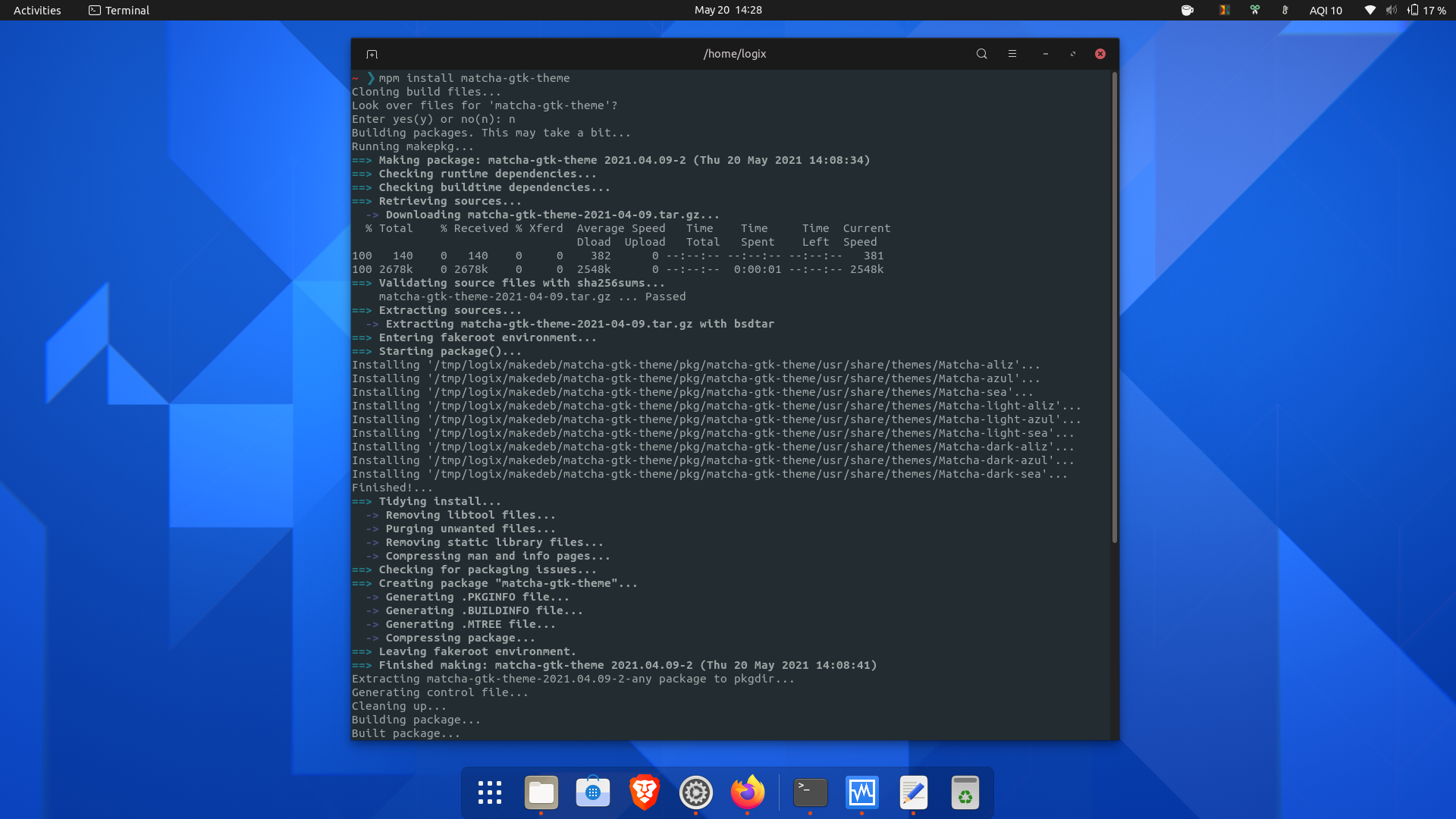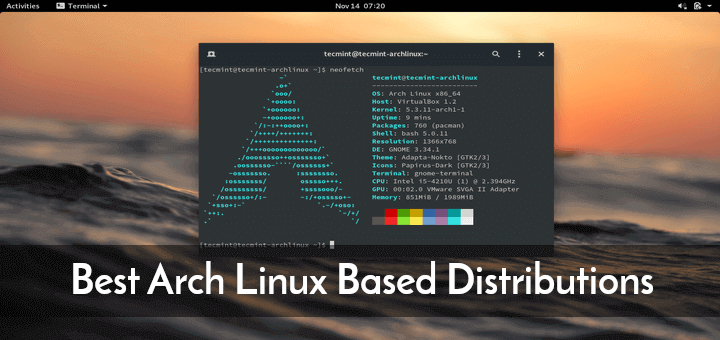

- Arch linux bitmessage install#
- Arch linux bitmessage update#
- Arch linux bitmessage software#
- Arch linux bitmessage code#
# The system call is safe, because all arguments are passed as an array. OK, did now a first try without checking it since i do miss OpenSSL-3.0 on my system.
Arch linux bitmessage update#
→ The PKCS#12 standard needs another update | UNMITIGATED RISK a possible solution to your question comes up. Am not sure but with a ‘-certpbe AES-256-CBC -keypbe AES-256-CBC’ e.g. To go to your question, after a little bit looking around the OpenSSLs PKCS command have two options ‘-certpbe’ and ‘-keypbe’ which seems to give a choice to use other 128 bit block ciphers like AES. According to the PKCS#12 manpage → /docs/man3.0/man1/openssl-pkcs12.html only the ‘-legacy’ flag should also be an option ?!

Arch linux bitmessage install#
In the bug discussion the ‘-provider legacy’ flag has been added which seems to solve the problem for the first. This is my attempt to help end users install and try out the experimental messaging protocol known as PyBitmessage, on several cleanly installed Debian based Linux Distributions. Since OpenSSL decides to remove old vulnerable ciphers (64 bit block ones onyl i think) and RC4 and RC2 are such ones the 3.0 version delivers an error to decrypt the PKCS#12 packages with the old OpenSSL command which is a client side problem. There are few things as exciting as blockchain technology.This one can be found on the OpenSSL Github issues page → 3.0.0-alpha1: "openssl pkcs12" is unable to parse or create PKCS#12 archives with default ciphers A program that takes advantage of this technology is PyBitmessage. PyBitmessage is an interesting program, but it doesn’t seem like the major Linux distributions have enough interest in it to officially carry it.īest of all, this program can be used on various operating systems, including Linux! Install PyBitmessage With this program, users can send P2P messages with the Bitcoin block chain, securely. Sudo zypper install python-qt python-msgpack-python python-setuptools gcc-c++ libopenssl-devel python-devel git ArchLinux Sudo dnf install PyQt4 python2-msgpack python2-pyopencl python2-setuptools gcc-c++ redhat-rpm-config python-devel openssl-devel git OpenSUSE Sudo apt-get python-qt4 python-msgpack python-pyopencl python-setuptools build-essential libssl-dev git fedora Sudo apt install python-qt4 python-msgpack python-pyopencl python-setuptools build-essential libssl-dev git Debian To start the build process, open a terminal and install the various libraries and dependency files required for your operating system.įortunately, this program is easy to compile and build from source code. Installing PyBitmessage on Arch Linux is not much different than building it on other Linux distributions, as we have described in this article.

However, given how the AUR works, Arch users get a much cleaner and more automated build process.
Arch linux bitmessage software#
Bitmessage was conceived by software developer Jonathan Warren, who based its design on the decentralized digital currency, Bitcoin. All dependency files are handled automatically. Bitmessage is a decentralized, encrypted, peer-to-peer, trustless communications protocol that can be used by one person to send encrypted messages to another person, or to multiple subscribers. To start installing PyBitmessage on your Arch Linux PC, you will first need to install the latest version of the Git package management tool with Pacman, package manager. The next step in the process is clone the latest PyBitmessage pkgbuild snapshot.ĬD into the newly cloned pybitmessage directory to start the package build process. report this adĬreating packages from the AUR is a quick and easy process. If makepkg doesn’t build, you might have some dependencies that can’t be installed automatically. To fix this, you’ll need to go to the PyBitmessage AUR page and install the rest of the dependencies manually. PyBitmessage has a useful script that allows users to scan their operating system and find out what dependencies they need to run the program. Git clone cd ~/PyBitmessage python checkdeps.py If you are trying to run this program on an operating system not listed above, follow these instructions to determine what you need. Most operating systems have instructions within the checkdeps.py script, including the ! edifice Please read the output of the script as it will detect what operating system you have and print the exact packages you need. We complement our official package sets with a community-operated package repository that grows in size and quality each and every day. Currently we have official packages optimized for the x86-64 architecture.
Arch linux bitmessage code#
With all the dependencies installed, it’s time to start working with the source code.įirst, using the git tool, clone the latest version of the PyBitmessage source code from GitHub. You've reached the website for Arch Linux, a lightweight and flexible Linux distribution that tries to Keep It Simple.


 0 kommentar(er)
0 kommentar(er)
